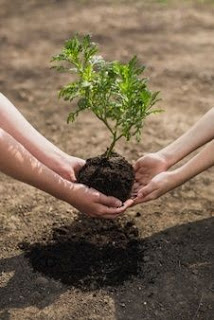Save the Earth
All life on Earth is
supported by ecosystems. The planet - and its inhabitants - will be healthier
if our ecosystems are healthy. The United Nations Decade on Ecological
Restoration aims to prevent, slow, and reverse ecosystem degradation on all
continents and in all oceans. It has the potential to aid in the alleviation of
poverty, the mitigation of climate change, and the averting of mass extinction.
It can only succeed if everyone contributes.
We wanted to showcase
the resilient and resourceful farmers with whom we have the luxury of working,
who are helping to restore their local ecosystems, in honor of World
Environment Day on June 5, 2021. Ecosystems are formed when plants, animals,
and people interact with their surrounds, such as nature, cities, and farms.
People have been abusing and destroying our Earth's ecosystems for far too
long, resulting in the loss of natural habitats and carbon sinks, escalating
the climate problem. For our survival, we all rely on healthy ecosystems. We
have caused the disasters and crises that we are all experiencing. It is all
our fault that our planet is dying, and we should be ashamed of ourselves
before God because it was given to us to protect, not destroy. But we humans
don't do it; instead, we do the exact opposite. If we examine what is going on
in our planet, we will find that large corporations are mostly responsible for
the destruction of our ecosystem. They don't give a damn about their
surroundings; all they care about is the money they'll make from whatever
activity they're engaged in. Mining, illegal fishing, deforestation, and
urbanization are just a few of the factors that are wreaking havoc on our
ecosystem. We should appreciate locals such as
farmers, fisherman, and those who live in the uplands because they are the ones
who are capable of caring for our ecosystem. Ecosystem Restoration is the
subject for Environment Day 2021. Ecosystem restoration entails assisting in
the recovery of ecosystems that have been degraded or destroyed, as well as the
preservation of intact ecosystems. More fertile soils, larger harvests of
timber and fish, and larger stores of greenhouse gases are all benefits of
healthier ecosystems with greater biodiversity. Restoration
can take several forms, including actively planting or relieving pressures to
allow nature to regenerate on its own. Returning an ecosystem to its original
state is not always possible or desirable. On land that was previously forest,
for example, we still need farms and infrastructure, and ecosystems, like
society, must adapt to a changing climate.



Comments
Post a Comment